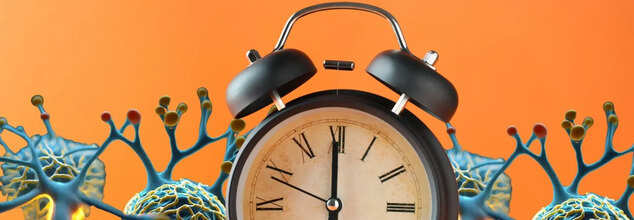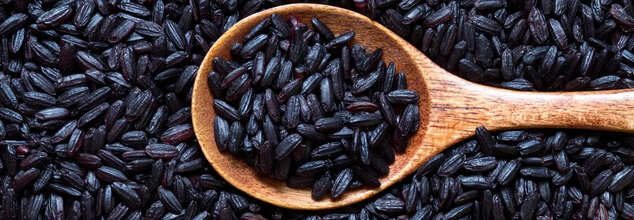
Credits: Canva
Cancer Misdiagnosis: A Case of Missed Diagnosis And Its Consequences
A recent investigation by the Parliamentary and Health Service Ombudsman (PHSO) has revealed a troubling case of cancer misdiagnosis that may have cost a patient precious months of life, reported the BBC. Despite multiple scans indicating the presence of a malignant tumor, a 54-year-old man's aggressive brain tumor was incorrectly identified as benign.
The Patient's Journey: From Tenerife to the UK
The patient, who had been on holiday in Tenerife, first sought medical help after becoming unwell. As the BBC reports, the doctors at a local hospital in Tenerife quickly identified the tumor as cancerous and even offered to remove it. However, believing he would receive the best care through the NHS, the man chose to return home to the UK.
Once back in Gillingham, further scans at the local hospital confirmed the presence of the tumour. The patient was subsequently referred to specialists at King’s College Hospital for further evaluation and treatment.
A Devastating Error in Diagnosis
Despite the scans and initial diagnosis, medical staff at King’s College Hospital downgraded the diagnosis, incorrectly concluding that the tumor was non-cancerous. As a result, the patient was not offered chemotherapy or radiotherapy, treatments that could have potentially extended his life.
The man underwent surgery to remove the tumor, but tragically, he passed away just one month later. The operation confirmed that the tumor had been cancerous all along. If the cancer had been correctly identified earlier, the patient could have undergone surgery months before and had the option of additional treatments such as chemotherapy and radiotherapy.
The Ombudsman's Findings and Family's Response
The PHSO's investigation found that the misdiagnosis significantly impacted the patient’s treatment options and potentially shortened his life. Although survival rates for this type of cancer are generally low, earlier intervention might have given him additional months with his loved ones.
The patient's brother, reflecting on the tragedy, stated:
“I wanted King’s College Hospital to acknowledge their mistakes so that I can stop picking at the scab of trying to understand what happened to him and remember my brother as he was when he was alive.”
Acknowledgement and Compensation
In response to the findings, King’s College Hospital NHS Foundation Trust admitted to errors in the patient's care and apologised to the family. The trust has since implemented changes to improve patient safety and diagnostic accuracy. As part of the resolution, the hospital agreed to pay the family £3,500 in compensation.
Broader Concerns About NHS Diagnostics
This case is part of a larger pattern of failings in medical imaging and diagnostics within the NHS. The ombudsman previously issued a 2021 report recommending system-wide improvements, yet cases of sub-optimal care continue to emerge.
Ombudsman Rob Behrens stressed the need for urgent action, stating:
“Each case represents a real person whose life has been impacted by failings in care. It is critical that the NHS improves its digital infrastructure to ensure faster and more accurate diagnoses.”
The Need for Systemic Change
Experts within the healthcare system agree that digital infrastructure improvements are vital. Dr. Katharine Halliday, President of the Royal College of Radiologists, acknowledged the devastating failures highlighted by the report, attributing some of the issues to an overburdened and under-resourced system. The Royal College of Radiologists predicts a 30% shortfall in clinical radiologists, which could increase to 40% by 2028.
NHS and Government Responses
An NHS spokesperson acknowledged the challenges but highlighted that record numbers of tests and checks had been conducted in 2024, marking a 20% increase compared to pre-pandemic levels. However, they admitted that more must be done to improve the recognition and response to serious health conditions.
A Department of Health and Social Care spokesperson echoed these sentiments, emphasizing their commitment to improving cancer diagnostics through expanded Community Diagnostic Centres and advanced AI technology. Additionally, new initiatives aim to diagnose 100,000 more patients within four weeks of referral and start treatment for up to 19,000 additional cancer patients each year.

Credit: Canva
This Powerful Ayurvedic Herb Solution To All Your Dental Issues
Ayurveda, the ancient system of natural healing, has long been trusted for addressing concerns such as stress and depression. However, many people may not realize that it also offers effective solutions for maintaining optimal dental health and treating various oral issues. One of the key products used here is neem.
Neem (Azadirachta indica) has been a cornerstone of Ayurvedic dental care for centuries due to its antibacterial, antifungal, and anti-inflammatory properties. Incorporating neem into your oral hygiene routine may help achieve naturally whiter teeth while promoting overall oral health.
ALSO READ: Why Limiting Sugar In The First 1,000 Days Of A Child Matters For Lifelong Health
So How Does Neem Enhance Dental Health?
Natural Teeth Whitening
Neem contains compounds like nimbolide, azadirachtin, and nimbidin, which possess astringent properties that aid in removing stains and plaque buildup. "These natural components help brighten teeth, leading to a healthier smile," explains Dr. Ganesh Chaudhary, Bachelor of Ayurvedic Medicine and Surgery, PHC, Darbhanga, Bihar.
Antibacterial Action
Neem’s strong antibacterial properties help combat harmful bacteria responsible for plaque buildup, gum disease, and bad breath. "Using neem-based toothpaste or mouthwash can control bacterial growth, supporting oral hygiene and preventing infections," says Dr. Chaudhary.
Anti-Inflammatory Benefits
Gum inflammation can contribute to oral health issues and discoloration of teeth. "Neem’s anti-inflammatory properties reduce gum inflammation, supporting overall gum health and creating a healthier oral environment," Dr. Chaudhary notes.
Prevention of Common Dental Issues
Regular use of neem in oral care can help prevent common dental problems such as cavities, gingivitis, and periodontal disease, all of which can impact the appearance of teeth. "By maintaining strong oral health, neem indirectly contributes to whiter teeth," Dr. Chaudhary states.
Fresher Breath
Neem’s antibacterial properties not only fight odor-causing bacteria but also leave the mouth feeling refreshed. This can contribute to long-lasting fresh breath and improved oral hygiene.
How To Use Neem To Enhance Your Dental Health?
Neem Toothpaste
Opt for toothpaste containing neem extract or neem oil. "Brushing with neem-based toothpaste can naturally promote oral health and whiten teeth," says Dr. Chaudhary.
Neem Mouthwash
Using a neem-based mouthwash after brushing can help eliminate bacteria, cleanse the mouth, and freshen breath effectively.
Neem Chewing Sticks (Miswak)
Chewing on neem sticks, also known as Miswak or Siwak, is a traditional practice that naturally cleans teeth. The fibers in neem sticks help remove plaque, while their antibacterial properties support oral hygiene.
Neem Oil Pulling
Oil pulling, an Ayurvedic practice of swishing oil in the mouth, can be enhanced by using neem oil. "Neem oil pulling helps whiten teeth, reduce plaque, and promote gum health," Dr. Chaudhary recommends.
Important Considerations
While neem is generally safe for oral use, some individuals may experience sensitivity or allergic reactions. A patch test before extensive use is advisable.
Incorporating neem into your dental routine offers a natural way to achieve whiter teeth while supporting overall oral health. However, maintaining good oral hygiene practices—such as regular brushing, flossing, and dental check-ups—remains essential for optimal results.
ALSO READ: Your Ultimate Guide To Getting Started With Kettlebell Workouts Is Here-Check It Out

Credit: Canva
Your Brain Starts Eating Itself If You Don't Sleep Enough, Research Finds
There is no denying that we've all grown up listening to idioms that refer to sleep as something unproductive. For years, society has glorified the idea of sacrificing rest to achieve more, pushing the narrative that success comes at the cost of sleep. However, as cases of sleep disorders such as insomnia, sleep apnea, and chronic fatigue increase, health experts are raising serious concerns about the repercussions of sleep deprivation. Recent research has now revealed an alarming consequence—when deprived of sleep, the brain quite literally starts eating itself.
A study published in *The Journal of Neuroscience* has uncovered that prolonged wakefulness leads to the brain consuming its own healthy cells. Researchers found that astrocytes, which are responsible for maintaining and repairing the brain, become overly aggressive in trimming unnecessary synapses. While this process is beneficial in moderation, chronic sleep deprivation causes astrocytes to over-prune, damaging essential neural connections instead of just clearing out the excess. This means that rather than helping the brain function efficiently, persistent lack of sleep triggers its deterioration over time.
Additionally, the study found that microglia—the brain’s immune cells—become hyperactive due to sleep deprivation. Normally, microglia work to clear out harmful debris, bacteria, and dead cells to protect the brain from infections and inflammation. However, when sleep is consistently disrupted, these immune cells remain in a prolonged state of activation. This sustained hyperactivity may lead to chronic inflammation in the brain, which has been linked to several neurodegenerative diseases, including Alzheimer’s and Parkinson’s.
The consequences of sleep deprivation extend far beyond just feeling fatigued. Over time, the cumulative damage caused by these changes in brain activity may accelerate cognitive decline, impair memory, and increase the risk of developing neurological disorders. Alarmingly, researchers also observed that chronic sleep loss contributes to overall brain shrinkage. This suggests that deep, consistent sleep is one of the most powerful ways to preserve long-term cognitive health and prevent irreversible damage.
It is well known that sleep plays a crucial role in clearing out toxins from the brain, consolidating memory, and regulating emotions. Losing too much of it can disrupt these essential functions, potentially leading to mood disorders such as depression and anxiety. Furthermore, studies suggest that sleep deprivation affects decision-making skills and reaction times, increasing the likelihood of accidents and poor judgment.
With the rise of digital distractions, work pressure, and social commitments, people are sleeping less than ever before. However, these new findings reinforce the importance of prioritizing quality sleep. Experts suggest that maintaining a consistent sleep schedule, reducing screen exposure before bed, and practicing relaxation techniques such as meditation or reading can significantly improve sleep quality.
While we may be tempted to trade sleep for productivity, the science is clear—skimping on rest can have serious long-term effects on brain health. If chronic sleep deprivation continues, the brain may begin to deteriorate at an accelerated pace, making it more susceptible to cognitive decline and neurodegenerative diseases. In the end, investing in proper sleep is not just about feeling rested; it’s about ensuring that the brain remains strong and resilient for years to come.

Credit: Canva
Gluten-Free Black Rice Is Great For Your Eyes-But What Else Does It Offer?
When we talk about rice, we mostly talk about white or brown. However, not many people know that there is a black-purple coloured variant of this called Black rice. Packed with nutrients, this variant owes its purple colour to a pigment called anthocyanin, which has potent antioxidant properties. Intrestingly, in ancient China, black rice was considered so unique and nutritious that it was forbidden for everyone beyond royalty.
What's Special About Black Rice?
1. A Rich Source of Essential Nutrients
Black rice stands out among rice varieties due to its high protein content. In comparison to brown rice, which contains 7 grams of protein per 100 grams, black rice offers 9 grams. It is also a valuable source of iron, a mineral crucial for oxygen transport in the body.A quarter cup (45 grams) of uncooked black rice provides:
Calories: 160
Fat: 1.5 grams
Protein: 4 grams
Carbohydrates: 34 grams
Fiber: 1 gram
Iron: 6% of the Daily Value (DV)
2. High in Antioxidants
Beyond its protein and fiber content, black rice is rich in antioxidants—compounds that help combat oxidative stress and reduce the risk of chronic diseases such as heart disease, Alzheimer’s, and cancer. Studies indicate that black rice has the highest antioxidant activity among rice varieties, containing over 23 beneficial plant compounds, including flavonoids and carotenoids.
3. Contains Anthocyanins for Added Health Benefits
Anthocyanins, the flavonoid pigments responsible for black rice’s dark hue, are known for their potent anti-inflammatory, antioxidant, and anticancer properties. Research suggests that consuming anthocyanin-rich foods can lower the risk of chronic diseases such as heart disease and obesity.
4. Supports Heart Health
Though research on black rice and heart health is ongoing, its flavonoids have been linked to a lower risk of cardiovascular disease. Some studies suggest that anthocyanins can improve cholesterol levels by increasing HDL (good) cholesterol and reducing LDL (bad) cholesterol. While further research is needed, early findings suggest black rice may help reduce plaque buildup in arteries.
5. Potential Anticancer Properties
Black rice’s anthocyanins may also play a role in cancer prevention. Population studies show that higher intake of anthocyanin-rich foods is associated with a reduced risk of colorectal cancer. Additionally, laboratory research suggests that anthocyanins from black rice can inhibit the growth and spread of breast cancer cells. However, more human studies are needed to confirm these effects.
6. Promotes Eye Health
Black rice contains significant amounts of lutein and zeaxanthin, two antioxidants that protect the eyes from damage caused by free radicals. These compounds help filter harmful blue light and may reduce the risk of age-related macular degeneration (AMD), cataracts, and diabetic retinopathy. Animal studies suggest anthocyanins may also protect the retina, though human research is still limited.
7. Naturally Gluten-Free
For individuals with celiac disease or gluten sensitivity, black rice offers a nutritious, gluten-free alternative to many whole grains. It provides essential nutrients without triggering digestive issues associated with gluten-containing grains like wheat, barley, and rye.
8. May Aid in Weight Management
Black rice’s high protein and fiber content can promote satiety, potentially aiding in weight management. Some animal studies suggest that anthocyanins may help reduce body fat, though human studies are still limited. A study found that consuming a mix of black and brown rice led to greater weight loss compared to eating white rice.
9. Additional Health Benefits
May Help Regulate Blood Sugar: Animal studies suggest that black rice may aid in blood sugar control, though human trials are required for confirmation.
Supports Liver Health: Research on mice indicates that black rice may reduce fat accumulation in the liver, potentially lowering the risk of non-alcoholic fatty liver disease (NAFLD).
10. Easy to Cook and Versatile
Cooking black rice is similar to preparing other rice varieties. Simply combine the rice with water or broth, bring it to a boil, then reduce the heat and let it simmer for 30–35 minutes until tender. To achieve a fluffier texture, rinse the rice before cooking to remove excess starch.
Black rice can be used in various dishes, including grain bowls, stir-fries, salads, and desserts like rice pudding.
© 2024 Bennett, Coleman & Company Limited

